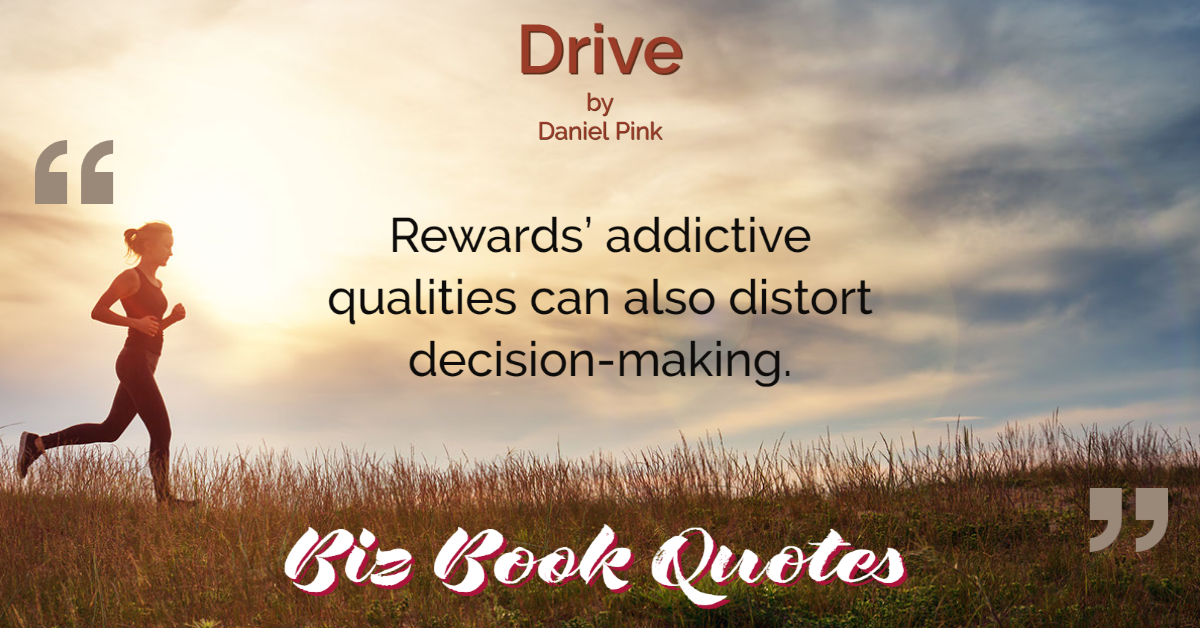 |
Rewards’ addictive qualities can also distort decision-making.
|
55 |
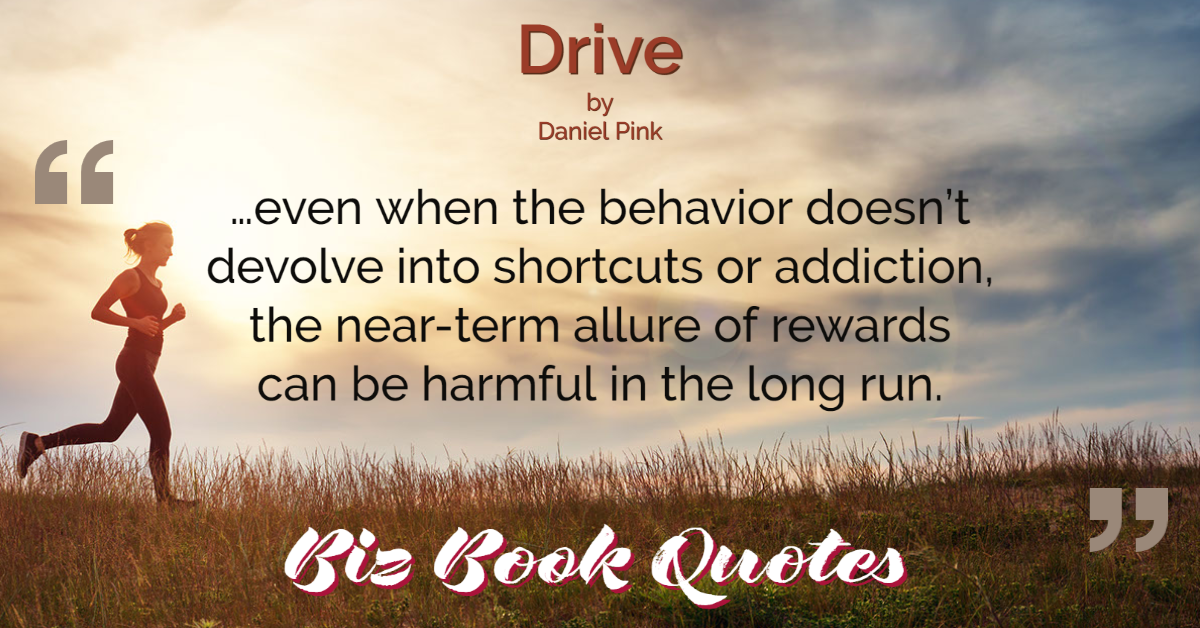 |
…even when the behavior doesn’t devolve into shortcuts or addiction, the near-term allure of rewards can be harmful in the long run.
|
57 |
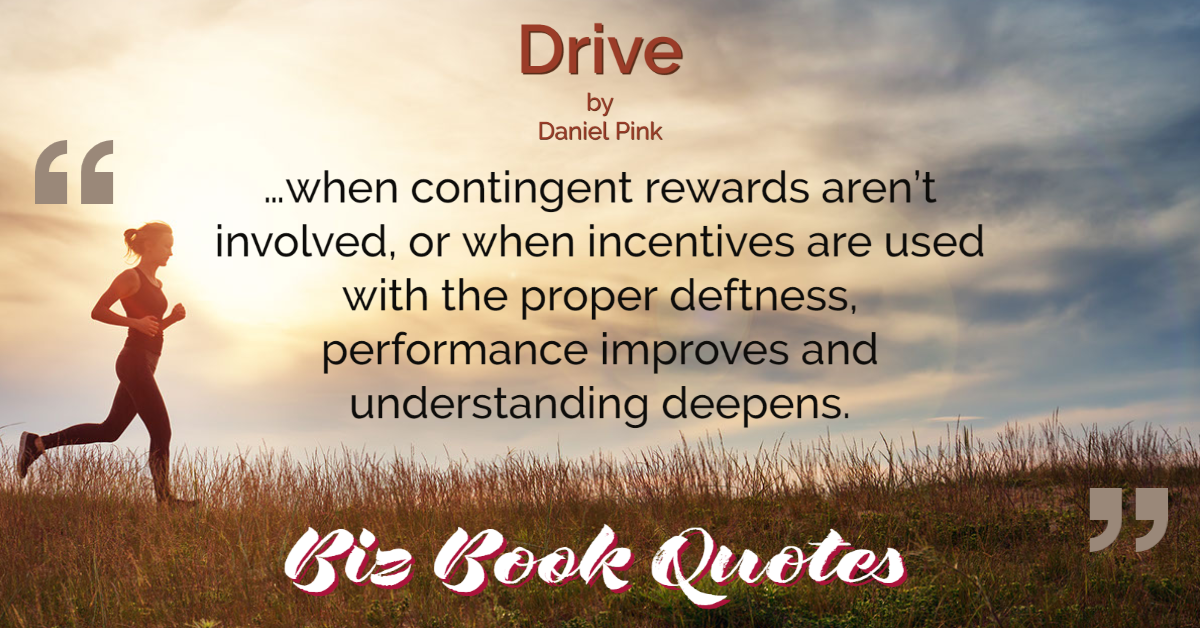 |
…when contingent rewards aren’t involved, or when incentives are used with the proper deftness, performance improves and understanding deepens.…
|
58 |
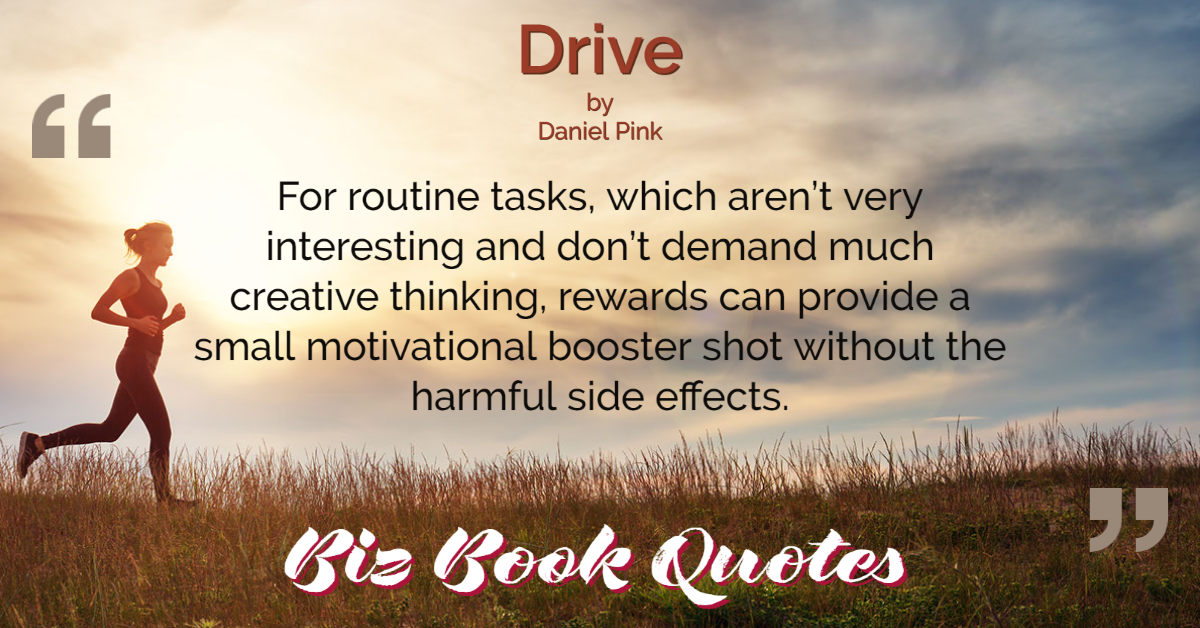 |
For routine tasks, which aren’t very interesting and don’t demand much creative thinking, rewards can provide a small motivational booster shot without the harmful side effects.
|
62 |
 |
The essential requirement: Any intrinsic reward should be unexpected and offered only after the task is complete.
|
66 |
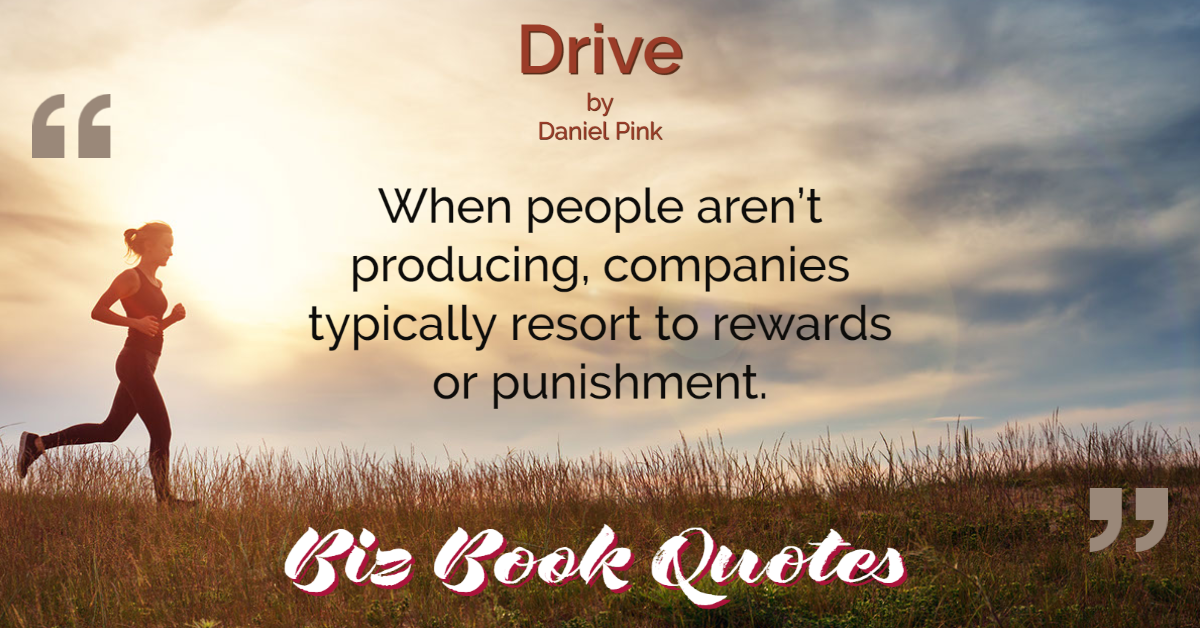 |
When people aren’t producing, companies typically resort to rewards or punishment.
|
72 |
 |
If people are conscious of what puts them in flow, they’ll have a clearer idea of what they should devote the time and dedication to master.
|
125 |
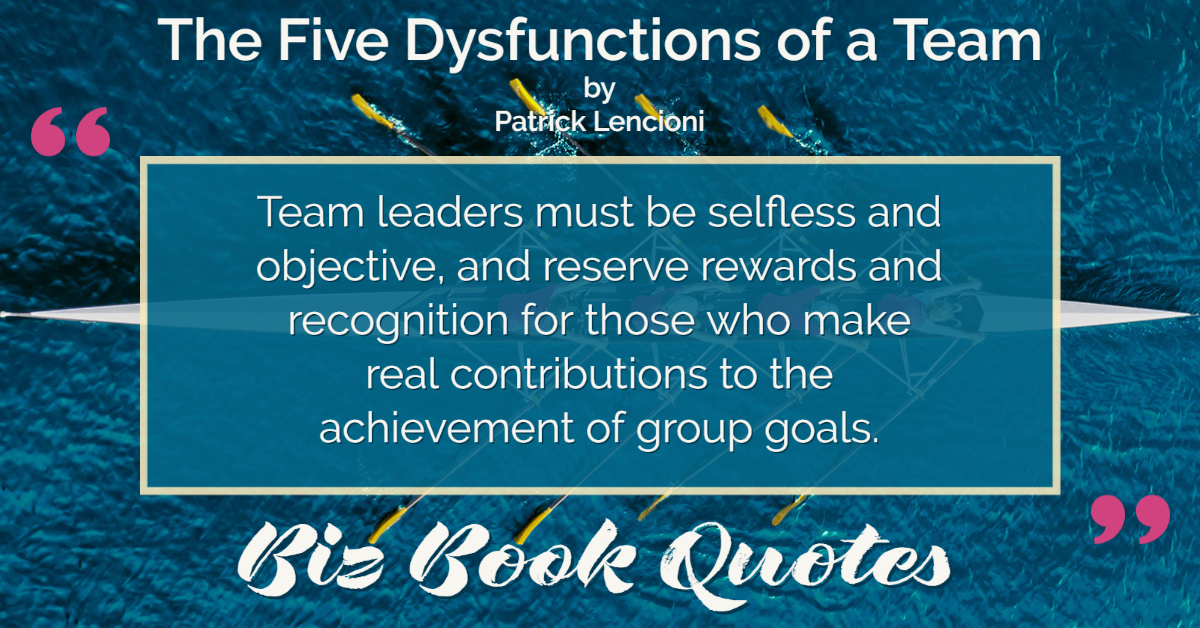 |
Team leaders must be selfless and objective, and reserve rewards and recognition for those who make real contributions to the achievement of group goals.
|
220 |
 |
The costs of being less than truly world class are growing, as are the rewards of being genuinely great.
|
15 |
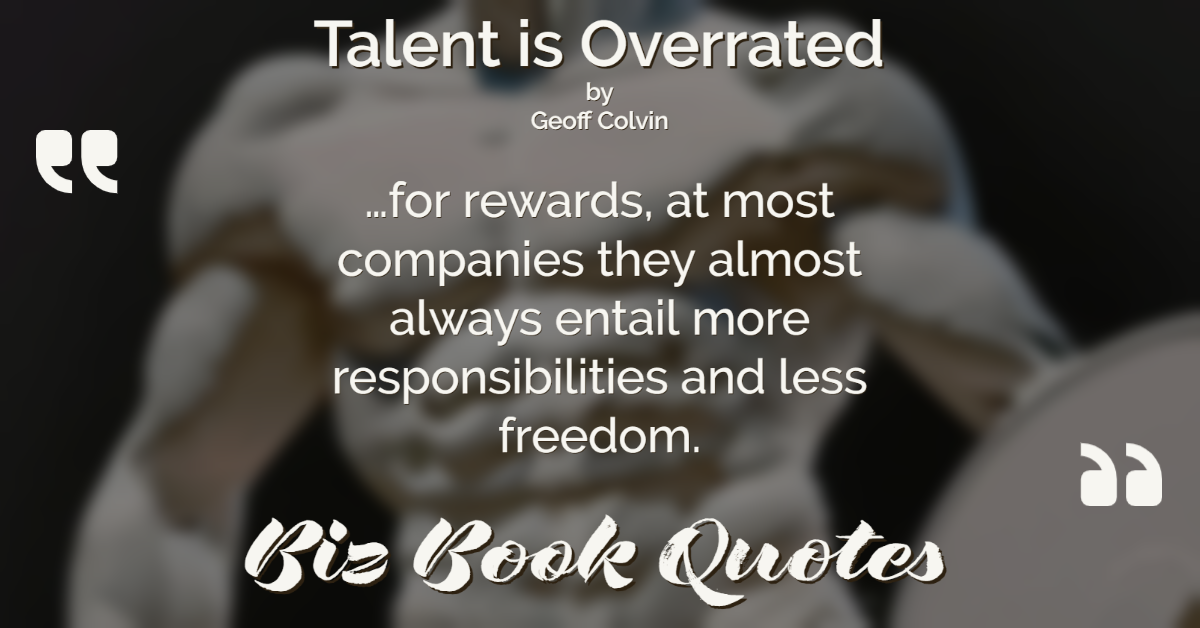 |
…for rewards, at most companies they almost always entail more responsibilities and less freedom.
|
194 |